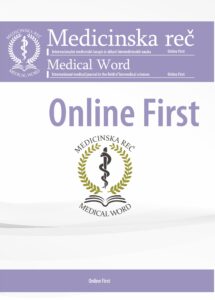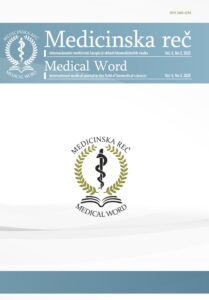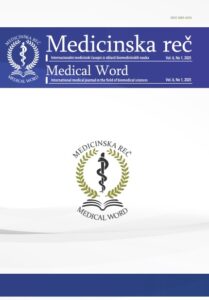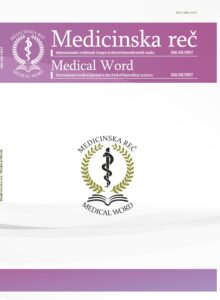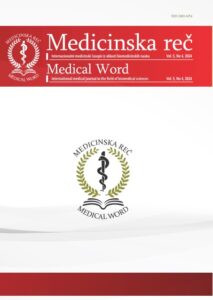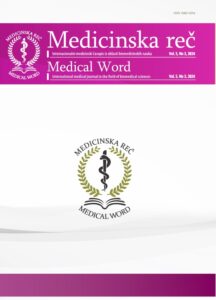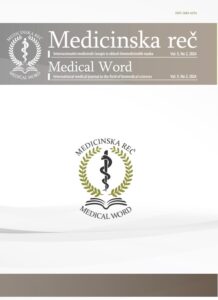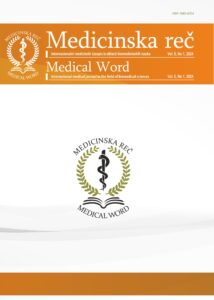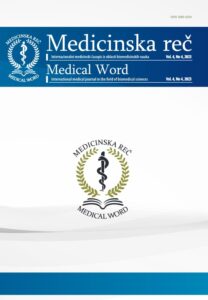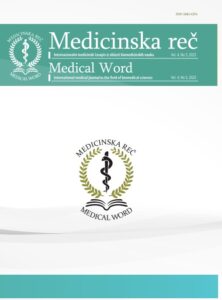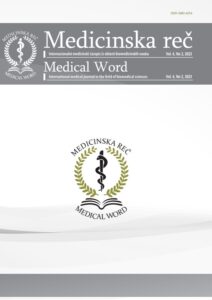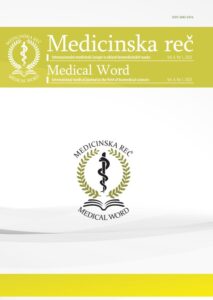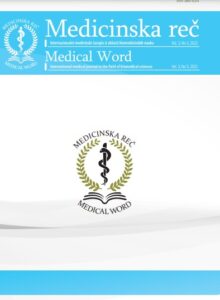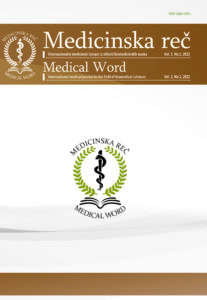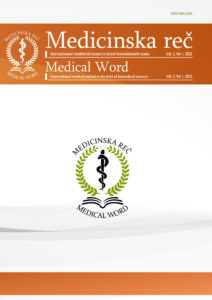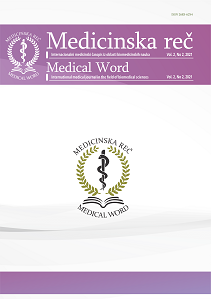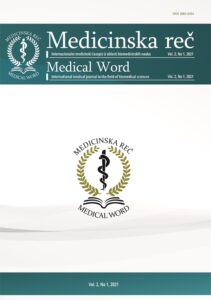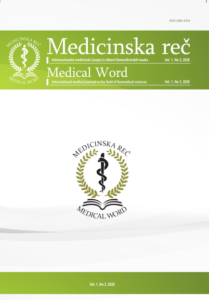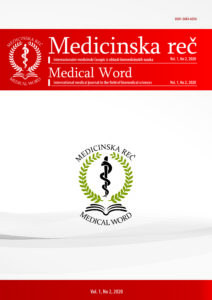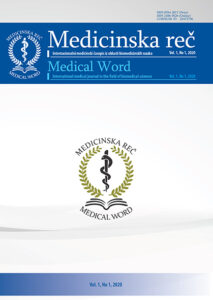Medical ethics and ethical norms
Review article
Miodrag Savović, Ljiljana Cvijić, Nebojša Vacić, Ana Antić, Zvonko Zlatanović
83–87
https://doi.org/10.5937/medrec2203083S
Abstract
The concept of ethics goes back to the time of Hippocrates, a Greek physician from the 4th century BC. Hippocrates’ basic principle was: use or at least do no harm. That principle is the foundation of high ethics, which is reflected in Hippocrates’ attitude toward his patients. The interest and well-being of the patient is the primary and main goal of his medical work and efforts. Health professionals most often encounter the Geneva formulation of the Hippocratic Oath. It emphasizes obligations related to the obligation to provide professional assistance, regardless of religious beliefs, racial and class affiliation, and political beliefs, and the obligation that professional knowledge may not be used contrary to the laws of humanity. In addition to the relationship with the patient, the relationship among the doctors is also important. The Geneva Declaration of the World Medical Association binds doctors with the words “The health of my patient will be my first obligation”, and the International Code of Medical Ethics declares “A doctor will act only in the patient’s interest when he provides the patient with medical care that may lead to his physical and mental weakening.” The significance of the Declaration of Helsinki has been confirmed by the incorporation of its rules into other international and national legal acts, ethical codes, and good clinical practice guidelines. It is not a simple set of ethical principles, but a guide to respect for human rights in performing experiments on humans. Some of the basic rights that the medical profession should ensure to patients are contained in the Lisbon Declaration.
Key words: ethics, code, humanity
Literatura
- Marić J. Medicinska etika, X dopunjeno izdanje. Beograd: Centar za izdavačku delatnost Ferijalnog saveza Srbije; 2000.
- Pellegrino ED. Thomas Percival’s Ethics: The Ethics Beneath the Etiquette. In: Thomas Percival, Medical Ethics. Birmingham: Classics of Medicine Library; 1985.
- Nenadović M. Medicinska etika, drugo prošireno i dopunjeno izdanje. Beograd: Univerzitet u Prištini – Medicinski fakultet; 2007.
- Basic Ethical Principles. Dostupno na: https://www.med.uottawa.ca/sim/data/Ethics_e.htm (Pristup 20. 04. 2017)
- Salihbegović E. Medicinska praksa i etičko pitanje. Srajevo: Ministarstvo zdravstva kantona Sarajevo; 2008.
- Lasagna L. Hippocratic Oath: Modern Version. Tufts University, dostupno na: http://www.pbs.org/wgbh/nova/body/hippocratic-oath-today.html.
- McDonald L. Sick-nursing and health-nursing. In: Florence Nightingale on public health care. Collected works of Florence Nightingale, Volume 6. Ontario: Wilfrid Laurier University Press; 2004.
- The Geneva Conventions of 1949 and their Additional Protocols. Dostupno na: https://www.icrc.org/en/document/geneva-conventions-1949-additional-protocols (Pristup 20. 04. 2017)
- Medicinska etika II, Dostupno na: http://www.academia.edu/30385298/Medicinska_etika_II.pdf (Pristup 20. 04. 2017)
- Medicinska etika-deklaracije, Dostupno na: https://filozofskitekstovi.wordpress.com/2013/10/20/medicinska-etika-deklaracije/ (Pristup 22. 04. 2017)
- Simonović I. Bioetika i ljudske vrednosti, Zbornik radova. Niš: Pravni fakultet Niš, Univerzitet u Nišu; 2012.


